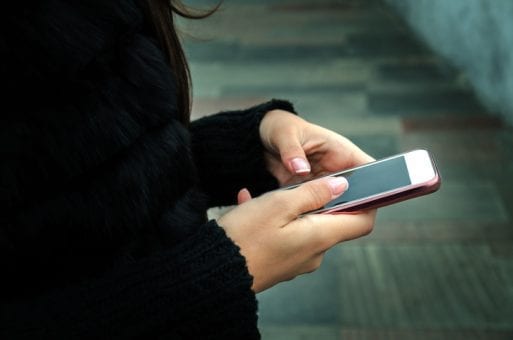The education and training needed to become a successful mental health and addiction counselor will never be substituted by the use of technology such as smartphones. However, these technological advances can be used as an adjunctive tool to give professionals and their clients more comfortable access to resources. There is no need to carry heavy textbooks around when you can look up a disorder and treatment plan at the click of a button with a recovery app. Nearly half of all adult cell phone users have apps on their phones.
Mental health apps are among some of the popular health and medicine apps to download for those who are seeking help for their disorder and for providers to ease their patient workflow. Well-designed, free or inexpensive apps have the potential to reach millions of people, who either cannot or will not engage with more traditional therapy and can potentially save their lives. Here are five beneficial apps for people who are recovering from an addiction or who have a mental health disorder.
Examples of Recovery Apps
Operation Reach Out
A free intervention tool that helps people who are having suicidal thoughts and ideations to reassess their thoughts and get help, this app was invented by the U.S. Army and is user-friendly to individuals who are depressed or in danger of harming themselves. If, for example, a user reports his mood is dipping into a risky zone, a pop-up message offers such suggestions as calling a health care provider, using deep breathing exercises or following directions to the nearest place to get help. This can be used as an adjunctive tool for suicidal treatment.
PsycEssentials
A pocket reference guide for psychotherapists, this resource includes an extensive guide with diagnosis and therapy guidelines.
Twelve Steps – The Companion
There are many 12-step-based apps out there. “Twelve Steps – The Companion” hits the sweet spot of being both very comprehensive and fun to use. It was also one of the first recovery apps available and has been updated several times. Additionally, the entire “Big Book” of Alcoholics Anonymous is included in the app, which can be very handy for traveling alcoholics in recovery who can’t carry a book everywhere they go. Many other accompanying staples of AA are included, such as the meeting preamble, the 12 steps and 12 traditions, and the AA promises.
Insight Notes
This is a record-keeping and note-taking program for therapists, evaluators, students, and other service professionals. Adam Alban, Ph.D., J.D., created Insight Notes to give fee-for-service psychologists a note-taking and record-keeping option that meets HIPAA requirements for encrypted data while providing large practice management solutions. The program, which Alban created with a team of attorneys, designers and app developers, allows psychologists to take notes and scan images that are organized by the patient and automatically backed up. Providers can then send these files securely in batches, rather than piecemeal. Users can also include their signatures and letterhead on any documents they choose.
ReliefLink: An app for suicide prevention
When someone who has attempted suicide winds up in the emergency room, the news is mostly good; he or she has failed at the attempt and is receiving care. But once discharged, the patient is at risk again. Seeking to improve the coordination of follow-up care and keep clients closely connected to help, ReliefLink is an app developed by a team led by American Psychological Association President Nadine J. Kaslow, Ph.D., at Emory University. The recovery apps includes features like a mood tracker, a personalized safety plan, coping strategies and an emergency button that connects users to friends, hospitals and other resources.
Keep in mind that there are hundreds of apps available for mental health professionals and clients. You can access these apps at the Apple or Android app site.
